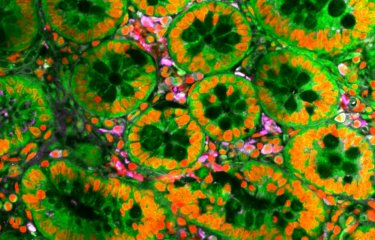Pathogenic Leptospira are responsible for leptospirosis, a disease that occurs in many world regions. Leptospirosis is a zoonosis, in other words it affects wild or domestic animals but may be transmitted to humans. A partnership between the Institut Pasteur (Paris) and the INRS Armand-Frappier Santé Biotechnologie Research Center has led to the discovery of a novel mechanism for virulence modulation used by these bacteria.
Leptospirosis is an emerging zoonosis occurring worldwide. It is estimated that there are more than a million severe leptospirosis cases each year, resulting in 60,000 deaths. In mainland France, leptospirosis has reached a record incidence of 1 case per 100,000 inhabitants since 2014 (read the Institut Pasteur disease fact sheet about Leptospirosis). In tropical regions like France's overseas departments and collectivities, the population is more widely exposed and leptospirosis is a major public health problem. But leptospirosis remains a neglected disease and Leptospira bacteria are under-researched, despite the fact that their characteristics make them unique in the bacterial world.
The analysis of Leptospira interrogans methylome reveals a virulence regulation mechanism
Scientists from the Institut Pasteur (Paris) and the INRS Armand-Frappier Santé Biotechnologie Research Center analyzed the methylome of Leptospira interrogans bacteria, responsible for the most severe forms of leptospirosis. In DNA, a methyl group can be added to some bases. This epigenetic process, known as methylation, is carried out by enzymes known as methyltransferases. The scientists demonstrated that a methyltransferase is responsible for the methylation of the cytosine bases at position 4 (m4C) of CTAG sites. This type of methylation is only found in the genomes of bacteria and archaea, and its role in these organisms is unknown. In the animal model, inactivating the gene encoding this methyltransferase leads to large-scale deregulation of the expression of L. interrogans genes and a loss of virulence.
This research reveals a new mechanism for gene expression regulation and virulence modulation via DNA methylation. The same strategy may also be used by other bacterial pathogens.
Source
4-methylcytosine DNA modification is critical for global epigenetic regulation and virulence in the human pathogen Leptospira interrogans, Nucleic Acids Research, November 9, 2020
Robert A. Gaultney1, Antony T. Vincent2, Céline Lorioux1, Jean-Yves Coppée3, Odile Sismeiro3, Hugo Varet3,4, Rachel Legendre3,4, Charlotte A. Cockram5, Frédéric J. Veyrier2, Mathieu Picardeau1
1 Unité Biologie des Spirochètes, Institut Pasteur, Paris, France
2 Bacterial Symbionts Evolution, INRS-Centre Armand-Frappier, Laval, Quebec, Canada
3 Transcriptome and Epigenome Platform, Biomics, Center for Technological Resources and Research (C2RT), Institut Pasteur, Paris, France
4 Biomics Technological platform, Center for Technological Resources and Research, Institut Pasteur, Paris, France
5 Spatial Regulation of Genomes Unit, Institut Pasteur, Paris, France





